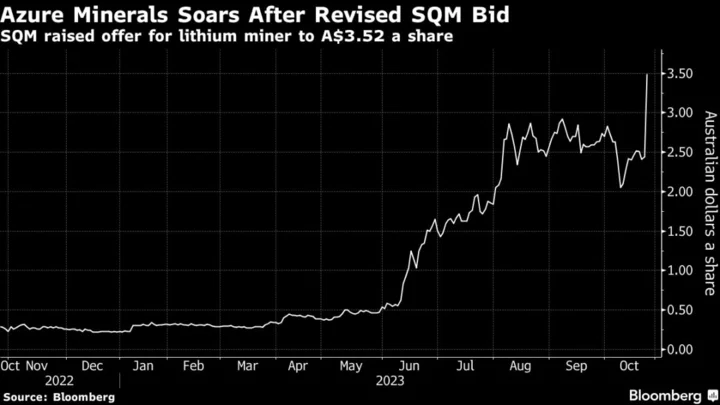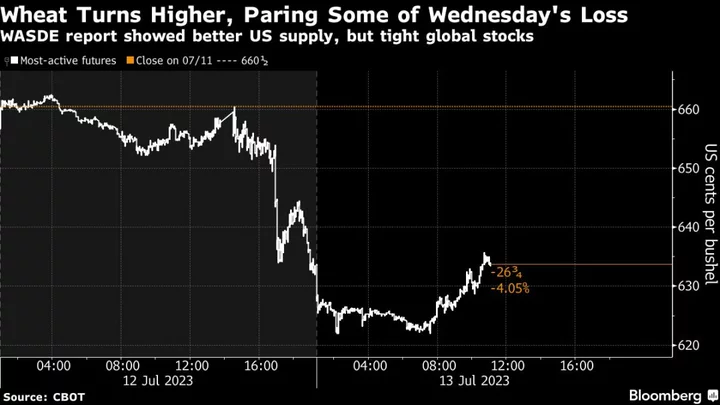Bank loan volumes in Asia Pacific have fallen to a six-year low due to rising interest rates and China’s weak economy, reflecting a global trend but also creating space for the region’s burgeoning private credit sector to grow.
Syndicated, club and bilateral loans in ex-Japan Asia Pacific this year slid to $327 billion as of Aug. 28, the least since 2017 in a Bloomberg-compiled data series even after including Australia’s biggest syndicated deal in 2023. That’s a 28% drop from a year ago, roughly matching the 29% decline globally.
“In APAC, tepid economic expansion in China has been a key reason for a decline in issuance this year,” Eugene Man, a partner at law firm White & Case LLP wrote in a report. “China’s loan market has not faced the interest rate and inflationary pressures that have buffeted western markets, but its economy has also not rebounded” at an anticipated rate.
Elsewhere in Asia, key markets including India, Australia and South Korea “have been impacted by higher inflation and rising interest rates, which led to a decrease in issuance in the region,” Man added.
While the Federal Reserve’s historic monetary tightening campaign has pummeled loan and bond financing, the $1.5 trillion private credit market has kept expanding as direct lenders snatch more deals away from banks and capital markets. Mirroring the developments in the US, the pullback by banks also has fueled demand among small businesses in Asia for private credit.
Demand for private credit rebounded globally in the second quarter, with 34 new funds raising $71.2 billion, more than double the previous three months, according to data from research firm Preqin. In Asia, where the asset class remains in its infancy, firms raised $1.4 billion, up from $180 million in the first quarter.
Although still a fledgling business, private credit lenders in the region are expected to play a bigger role as “they have carved out a certain niche for themselves,” according to Tibor Papp, chairman of the Asia Pacific Loan Market Association.
Unlike their US peers that tend to finance risky billion-dollar buyouts, many private credit funds in Asia have a different business model.
“In Asia excluding Australia, where it is really relevant is not sponsoring buyouts, but development capital of a small business that will struggle to get funding from a bank,” Papp said. “They do a whole lot of other things that banks are just not there for.”
To be sure, Papp said he still doesn’t see “a step change” to private lending in Asia and doesn’t expect a revolutionary shift in terms of how banks behave toward the sector and how they interact.









